This past week I had the privileged to travel to Tianjin China and present at a Forum hosted by Tianjin University of Technology.
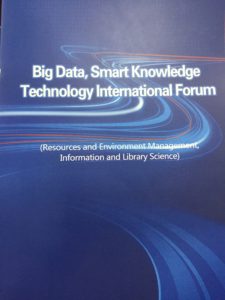 The forum provided an opportunity for experts from various fields to collaborate and share ideas on potential ways that Big Data analysis could influence the future of their particular field. Presenters focused on topics ranging from way big data can impact our day-to-day air quality and the resulting impact on respiratory and cardiovascular health to how big data could influence predictions within the stock market.
The forum provided an opportunity for experts from various fields to collaborate and share ideas on potential ways that Big Data analysis could influence the future of their particular field. Presenters focused on topics ranging from way big data can impact our day-to-day air quality and the resulting impact on respiratory and cardiovascular health to how big data could influence predictions within the stock market.
These presenters each imagined how finding patterns in related data and engaging in cross analysis of that data can lead to deeper understanding of important advances in human, social, cultural, and economic health in our world.
The honor to speak as a representative in the field of K-12 education cannot be overstated.
Big Data and Education
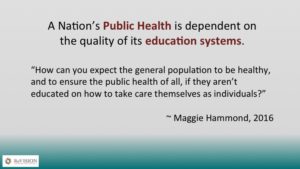 Given the Spring 2018 release by Corwin of our book on classroom observation and feedback that I co-authored new with Amy Tepper, I focused my Keynote on imagining ways in which advances in information technology could influence the way in which we collect, organize, and analyze data about student learning in the classroom.
Given the Spring 2018 release by Corwin of our book on classroom observation and feedback that I co-authored new with Amy Tepper, I focused my Keynote on imagining ways in which advances in information technology could influence the way in which we collect, organize, and analyze data about student learning in the classroom.
Making Interdisciplinary Connections
Knowing the great lengths we go every day working with administrators to build capacity to collect data in support of teacher learning and increased student learning in the classroom, I called experts in the room to action in consideration two things:
1. How can what we know about Big Data help us to redefine educator effectiveness and accountability and allow us to create better models of interaction with data, providing improved support for those who serve our children?
2. How can new information technology help us to build efficiencies in the way in which we collect evidence of student learning in the classroom, leading to knew understanding of what learning looks like for our students and what teacher actions lead to that learning?
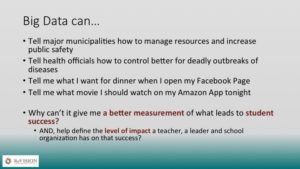
During a two-day collaboration with experts in the fields of Information Technology and Management it is clear that advances in technology and growing understanding of the potential behind Big Data analytics offers much to the field of education.
Presenters provided overviews of innovative practice in their fields including:
• Dr. J. Gregory McVerry, a ReVISION Learning Senior Contributor and Professor at Southern Connecticut State University, challenged us to rethink methodologies when using big data in the classroom. Dr. McVerry suggested we use more formative design based research projects centered on improving communities rather than chasing citation counts.
• Professor Chien-Lung Chan, leader for the research and development of big data and digital fusion center at Yuan Ze University, Taiwan presented his work in the field of disease patterning and the demand for and impact of long-term care solutions. Dr. Chan’s cross analysis of environmental and health data sets can provide support for the health industry, potentially securing new methods for early warning detection based on environmental factors.
• Guanzhong You, from Columbia University, and Professor Jheng-Long Wu, a researcher at Academia Sinica in Taiwan, each provided insights on the potential of machine learning and machine analytics. Work in stick prediction analysis provides examples of methods that can be applied to support the development of smart cities, creating efficiencies in transportation, energy consumption, and services.
• Professor Yan Quan Liu of Southern Connecticut State University, presented on Smart Libraries, demonstrating how new applications in library-media sciences can become a significant resource for communities, helping to personalize services.
• Tours and presentations by the Department of Management and the Department of Information-Technology at Tianjin University of Technology, provided insights to exciting research and development in the field of Big Data and Analytics including computer visioning and face-recognition technology.
Each of the presentations helped me glimpse the impact Big Data will have on education.
Creating Tomorrow’s Classroom Today
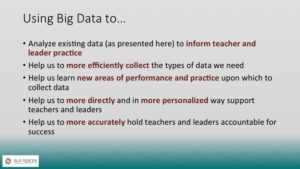 Highlighting some of the early work with Big Data approaches at the AltSchool in the US, I described data collection tools such as use of infrared cameras in classrooms tracking resource use and recording student and teacher talk. The use of fit-bit like devices with students to track movement, heart-rate, and time between meals. The information technology available to collect data offers tremendous opportunity in our classrooms. As I presented these innovative data collection approaches, I also demonstrated the challenges we face in the field of education.
Highlighting some of the early work with Big Data approaches at the AltSchool in the US, I described data collection tools such as use of infrared cameras in classrooms tracking resource use and recording student and teacher talk. The use of fit-bit like devices with students to track movement, heart-rate, and time between meals. The information technology available to collect data offers tremendous opportunity in our classrooms. As I presented these innovative data collection approaches, I also demonstrated the challenges we face in the field of education.
Intent remains the biggest question and critics, rightfully so, will question privacy risks. Time and data overload can often make too much information meaningless. Yet many of the presenters tackled these challenges in their fields and education can do the same. We must ensure that the development of efficient data collection strategies and analysis techniques on behalf of our students becomes our highest priority for students. Getting this information into the hands of teachers can transform classrooms.
Establishing the trust in that data and its collection is our first step.


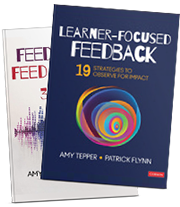
Leave a Reply